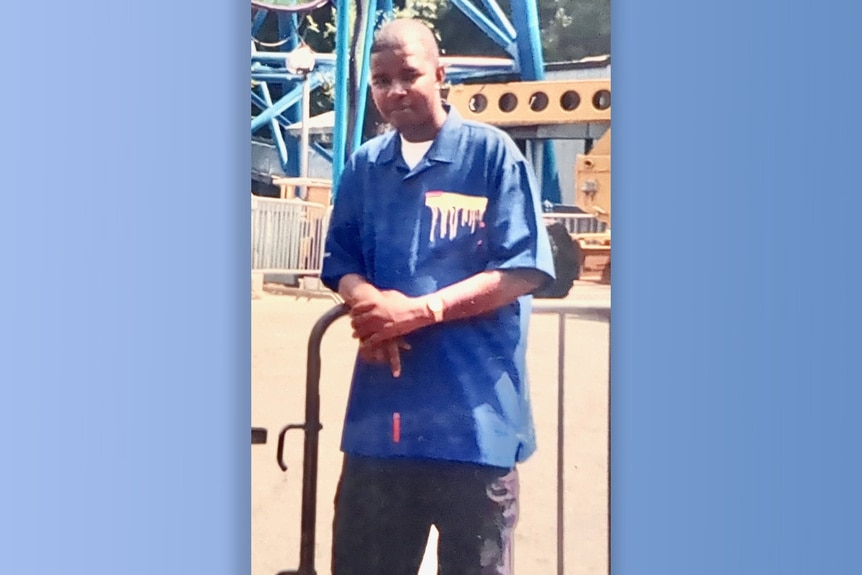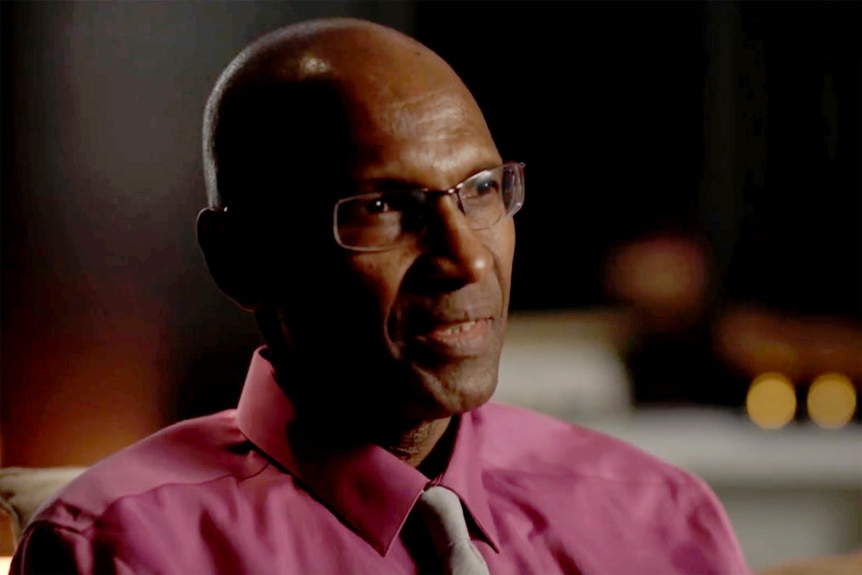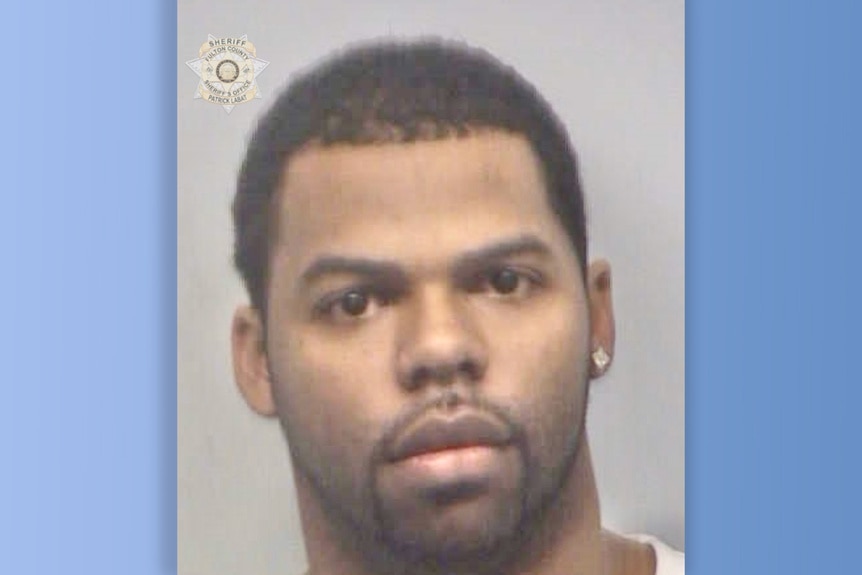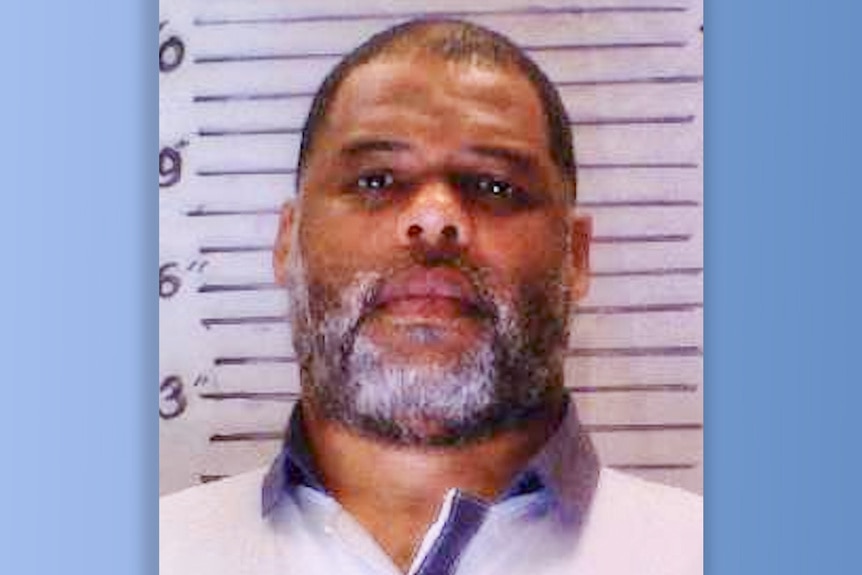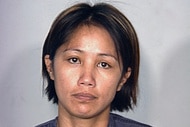Create a free profile to get unlimited access to exclusive videos, breaking news, sweepstakes, and more!
Atlanta Street Gang Tortures, Suffocates African Immigrant Businessman in "Brutal" Murder
Mamadou Barry, a 39-year-old entrepreneur from Guinea, was found dead in his Atlanta home, beaten and suffocated in his bathroom. A plastic bag and bucket covered his head.
For decades, Atlanta’s West End area was a magnet for African immigrants, who became a driving force behind commerce in the neighborhood.
Tragically, on November 28, 2005, Mamadou Barry, a 39-year-old entrepreneur from Guinea in West Africa, was found dead in his West End home. He’d been beaten and suffocated in his bathroom. A plastic bag and a bucket covered his head.
“Based on the level of decomposition, the medical examiner estimated the time of death approximately three days prior to discovery,” said Brett Zimbrick, a former homicide detective with the Atlanta Police Department.
The grim scene was unsettling. Nicole Esquilin, another former homicide detective with the Atlanta Police Department, vividly recalled the terrible scene in the “American Nightmare” episode of The Real Murders of Atlanta, airing Saturdays at 9/8c p.m. on Oxygen.
A "brutal" murder scene
“It was the most brutal, torturous murder I think I've ever seen,” Esquilin said.
Investigators believed that Barry’s slaying was carried out by more than one attacker, and looked for a motive as they processed the scene. The apartment had been turned upside down. Drawers were pulled out, pillows were shredded. But electronics and other valuables were present.
A blue substance was found in the bathroom. In the kitchen, where a sliding door was shattered, a spark plug was on the floor amid shards of glass.
Who was Mamadou Barry?
Detectives learned that Barry had lived alone in the apartment for several months. He sold DVDs and CDs, clothes, shoes and mini motorcycles at his store located in the Sylvan Hills neighborhood of Atlanta.
“His father explained to us that the victim had come here from Guinea to Atlanta to start a new life,” Esquilin told The Real Murders of Atlanta.
Aliou Barry, the victim’s uncle, said: “My nephew worked very hard, and all he wanted was to grow his business so he could help his family. I was proud of him.”
RELATED: Wrong Twin Suspected After Teacher Fatally Shot in Her Car and Clues First Point To Him
Mamadou Barry’s warehouse burglarized
Detectives obtained the address for Barry’s storage facility located in East Point. “The warehouse was cleaned out,” said Mark Hayes, a former news anchor for Good Day Atlanta. “Thousands of dollars’ worth of motorcycles cleaned out.”
The warehouse was processed for evidence, but no useful information was discovered.
“Mamadou’s family told us that the business was very successful,” Zimbrick said. “Based on what we observed, it was obvious that this was a business that was [making] in excess of six figures.”
Tracking Mamadou Barry’s business contacts
As Barry’s family and supportive Atlanta community grieved, detectives dug deeper. Police asked his family if they knew of anyone who would want to harm him.
His uncle considered the possibility that a business competitor or someone seeking to take advantage of his nephew’s success was involved.
“During the investigators’ search of Mamadou Barry's home, they found a list of people that he apparently did business dealings with,” said Lawanda Hodges, a former Fulton County prosecutor. “The police needed to examine who those people were.”
The homicide team combed through Barry’s documents for the names of his business associates. Without forensics, witnesses or video evidence, it was all they had to go on.
Crime scene lab results yield no clues
Detectives were dismayed to learn that no useful fingerprints or DNA evidence was recovered from Barry’s apartment. The team was able to identify one puzzling sample from the crime scene.
“The blue liquid discovered at the crime scene was actually Windex,” Zimbrick said. “We were unclear at that point the significance of it.”
Over the next few weeks, detectives canvassed the West End business community for leads. This avenue turned out to be a dead end.
But detectives noted that the brutality of Barry’s killing appeared to be part of a growing trend across Atlanta.
“In early 2006, crime had gone crazy in Atlanta,” Hodges said. “There were so many reports of murders and assaults and robberies.”
“We heard rumors that there might be one group responsible for this,” Hodges added. “We learned of a crew transplanted from New Orleans because of Hurricane Katrina, and they called themselves the International Robbing Crew, or the IRC.”
The street gang’s reach was widespread. “They were committing armed robberies. They were kidnapping. They were torturing people,” Esquilin said. “They were doing home invasions. They were operating as if they were the mafia.”
Had Barry run afoul of the IRC? “It now dawned on us that the brutality of Mamadou Barry’s death fit the pattern of the IRC,” Zimbrick said.
“It was a consensus among law enforcement that IRC was the most dangerous, notorious organized crime gang Atlanta had ever seen,” said Esquilin.
A break in the case
In February 2007, investigators working the Barry case were contacted by federal agents who’d arrested an individual named Carlos Drenon.
Drenon faced federal charges in a separate case, but he claimed to have information about Barry's murder. This was a turning point in the homicide case.
“Drenon was able to tell us about how one of the IRC members confessed to him about how he participated in Mamadou’s murder,” said Esquilin.
He recalled that Barry had been suffocated and that the killers cleaned up with Windex, which explained the blue liquid found at the scene.
“Nobody could have known this information unless you had been told by the killer or you had been at the crime itself,” Esquilin said.
Detectives believed Drenon knew more than he was saying and monitored his phone calls from lockup. Through these calls, they determined who made up the IRC.
They were led to Marciell Easterling, who traded information for immunity. He mentioned how attackers broke the glass door of Barry’s apartment with a spark plug.
Easterling then named fellow IRC member Jeremy Dunn as well as Daquan Stevens, who, like his father, had done business with Barry.
Arrests made in Mamadou Barry’s case
Authorities arrested Stevens, advising him that they knew of his connection to Barry. Stevens claimed that he tried to dissuade the IRC from plotting an attack against Barry.
But Barry’s success made him a target. IRC members were convinced that he had large amounts of cash, Esquilin said. They invaded Barry’s apartment, ransacked it in search of money, and dragged him into his bathroom.
“According to Daquan, Dunn tortured Mr. Barry and forced him to tell him about the valuables in the warehouse,” Hodges said.
Barry was hit and pistol-whipped. The IRC forced him to hand over keys to the warehouse. They put a bag over his head so that he would suffocate, as well as a bucket. The gang members then went to the warehouse to clean it out.
RELATED: Champion Boxer Fatally Shot in Atlanta by Killer Who "Felt Rage" and "Disrespect"
Stevens was arrested and charged for his role in Barry’s murder. According to the testimonies of both Stevens and Easterling, Dunn was the ringleader and the person who murdered Barry, said Hodges.
Dunn was tracked down at a local hospital after he’d been shot by another IRC member. He later died from his gunshot wounds.
Stevens was convicted of several crimes and “sentenced to lengthy prison terms,” said Zimbrick. Easterling was granted immunity for his cooperation.
To learn more about the case, watch the “American Nightmare” episode of The Real Murders of Atlanta, which airs Saturdays at 9/8c p.m. on Oxygen.




